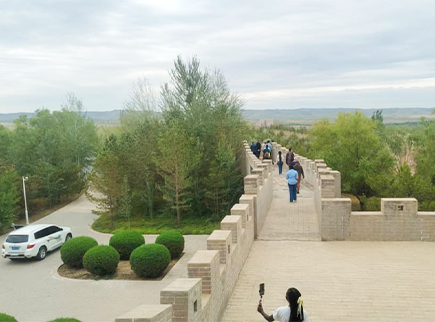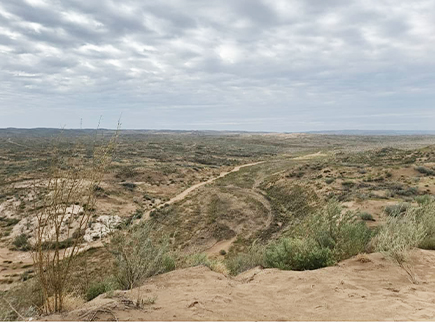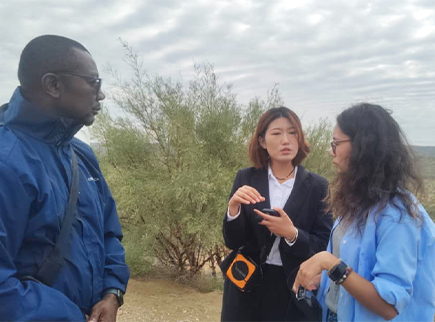Once a barren stretch of shifting dunes, the land now known as the Baijitan National Natural Reserve tells a remarkable story of the ecological civilisation and anti-desertification management efforts of the People’s Republic of China.
Many decades ago, this part, covering about 100,000 hectares of the Ningxia Hui Autonomous Region, was plagued by advancing desertification, with sandstorms burring villages, collapsing ecosystems for wild animals and threatening farmlands, compelling residents to live in constant fear of the moving desert.
The area located five kilomtres east of the Yellow River was sloppy from the East to the West, creating an easy path for the excess water from the Yellow River to constantly wash the sand pebbles, and river buds into the area, creating uneven landscapes with heaps of sand.
The situation was compounded by the area’s low volumes of annual rainfall of about 170 milimetres, aiding the natural efforts to deepening the effects of desertification to the ecosystem, agriculture and other industries that depended on the area for raw materials.

In the 1950s however, inspired by Mr Wang Youde, who is considered as the hero of anti-desertification pioneer, the local people in collaboration with the Ningxia Forestry Bureau transformed the area into thriving green forest.
With the establishment of the Baijitan National Anti-Desertification Centre under the management of the Ningxia Forestry Bureau as part of national restoration and regreening strategies, the vegetative covers have been restored and animals returned.
Using a technology termed as 1+4 Desert Control comprising employing straw checkerboard squares to stabilise the sand first before sowing grass seeds and planting seedlings, the desertification control effort gradually secured that land.
“With almost 70 years of management, we have been able to restore more 450 square kilometres of degraded area. We have also managed to push back the sand to more than 20 kilometres and vegetation coverage is about 41 percent”, Ji Wenlong, Deputy Director, Baijitan National Anti-Desertification Centre told journalists on a tour of the area.
In addition, within the restored landscape, a game reserve with deer and place of relaxation including playing ground for children, resting areas and restaurants has been established to serve as eco-tourism and to boost the local economy.
The Deputy Director who spoke through an interpreter called Ms Ma Ling, explained that the strategies adopted made a paradigm shift from traditional individual planting of trees to association and group-based approach.
“This method is called bidding system, where we encouraged people to form groups either into families or communities to plant trees and this has motivated the people to want to plant and nurture trees.
“Apart from that, we followed the guide of our desertification management hero… to achieve remarkable successes and unlike before when there was no life here, now we have some insects, birds and other animals returning to this area”, he added.
He said the area had become a learning curve for academic and industrial research and reiterated their commitment to ensure that the area remained to bring back the lost indigenous trees and animals.

The tour of the area was part of a 14-day training programme dubbed: “Seminar for Senior Management of Mainstream Media in countries along the Belt and Road Initiative”, held in Beijing, China.
Organised by the China Broadcasting International Economic and Technical Cooperation Co., Ltd (CBIC) and sponsored by the Ministry of Commerce of the People’s Republic of China, the seminar brought together 30 senior managers and journalists from landlocked countries.
The training is part of the commitment of the Chinese government and its institutions to strengthen and advance international communication cooperation with international media organisations and promote the global adoption of Chinese technologies, standards, and products.
Mr Albert Kofi Owusu, the General Manager of the Ghana News Agency, who marvelled at the history and transformation of the area, underscored the need for African countries to integrate ecological efforts of the BaijitanNational Natural Reserve to their national restoration strategies.

